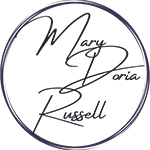Some novelists start with an outline. For them, a book is like a sculpture that will be modeled in clay. In the beginning, there’s just a wire armature. They add and add and add until the story is complete and rounded. For others — and I am among them — a novel starts out like a block of marble. We chip away at a mass of material until the story emerges. Then we smooth it out, bit by bit.
On July 26, 2013, I finished the first complete draft of Epitaph. I know this because I have a Post-It on my computer screen with the date and “197,888 words, 520 pp.” I spent eight months editing it down before submitting the manuscript to the publisher and I’ve continued to cut while waiting for my editor’s comments.
The latest Post-It says, “170,253 words, 480 pp.” This draft of Epitaph would be fifty pages longer than the published version of Doc and that’s okay. It’s a bigger story and covers a long stretch of time. Even so, if the editor or I find anything else that is either unnecessary or unlovely, I’ll happily remove even more material.
In the meantime, Epitaph has entered the production process at Ecco (Harper/Collins) in New York.
I’ve received the art department’s first attempts at a cover. (To me, this is the most fraught aspect of production. It feels as important and personal as choosing a wedding dress, but I am trying very hard not to be a Bridezilla.) We currently have one version of one idea for a cover that I could live with but which isn’t killer. I’m hoping that the next batch of sketches includes something that makes me as happy as the cover of Doc.
Yesterday, I submitted my answers to the author questionnaire for marketing and publicity. I’m a little hazy about the difference between marketing and publicity, but the questions are separated that way.
Marketing wants to know, Do you belong to a club like Sam’s or Costco? What’s your online presence? How many followers on Twitter? How many Likes on Facebook? Who should we send review copies to? Who might blurb this book? What are your demographics? Do you mention any brand name products in your book? What cross-promotional opportunities are there?
Publicity, on the other hand, asks about previous experience with news media, TV and radio shows. They need author photos; a 250-word autobiography for the back flap; a 500-word essay about how and why I wrote the novel; a 250-word summary of the story. What specialty magazines or journals might review the book? Do I have friends or contacts in the media?
There’s a part of me that would very much like to be an aloof artiste floating above all this self-promotional commercialism, but the fact is Poe, Dickens and Twain all hustled their work relentlessly. So who am I to complain? It’s part of the job, and the more fodder I can give marketing and publicity, the better for Epitaph.
